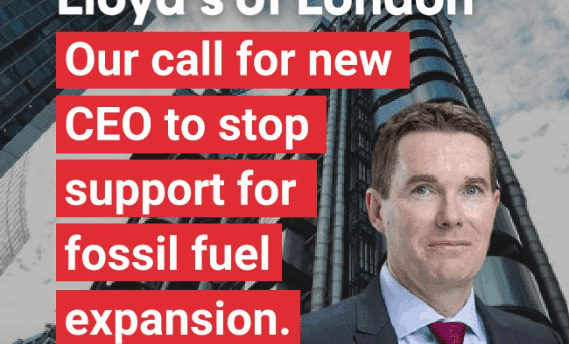Zurich, 20 September 2024 – Zurich Insurance published its first transition plan yesterday. Campax and Insure Our Future welcome the move, but are disappointed with the unambitious emission reduction targets.
Zurich Insurance, ranked 4th globally in primary insurance and 6th in insuring fossil fuels, was previously a member of the Net Zero Insurance Alliance (NZIA). As such, it was required to set emissions reduction targets by July 2023. Although Zurich left the NZIA in April 2023, and the alliance has since dissolved, Zurich has stated that it remains committed to supporting the net-zero transition. However, its climate transition plan and interim targets, released over a year late, remain disappointingly unambitious.
Zurich aims to reduce the intensity of its insured emissions (not the absolute emissions) by 20% between 2022 and 2030, considering only Scope 1 and 2 emissions (Transition Plan p. 12). The NZIA’s Target Setting Protocol required at least a 34% reduction from 2019 to 2030, which still falls short of the 43% reduction needed according to the IPCC’s 1.5C pathway. Zurich’s target not only falls short of the NZIA’s minimum requirements but is also well below the scientific recommendations outlined by the IPCC, as well as the interim targets set by other insurers such as Allianz, AXA, MS&AD, Fidelis, ASR and NN.
Their approach to engagement with insurance customers is also unconvincing. While it is encouraging that they are finally seeking to resume this engagement after the expiration of their program with coal customers, the requirement for their oil and gas customers to have a credible transition plan by 2030 is too little too late. Furthermore, we encourage Zurich to use robust transition plan criteria such as the one provided by the UN Secretary-General’s High-level Expert Group (HLEG) to assess the credibility of the transition plans of its customers.
”Zurich’s transition plan does not address scope 3 emissions which account for 75% to 80% of all emissions generated by the oil and gas sector. Globally, we are already facing a colossal insurance protection gap and are increasingly seeing insurers abandoning communities due to more frequent and severe extreme weather impacts of climate change. Zurich’s transition plan will not do enough to stop this trend. This was a missed opportunity to align with global climate goals, while addressing the root cause of the insurability crisis.”



